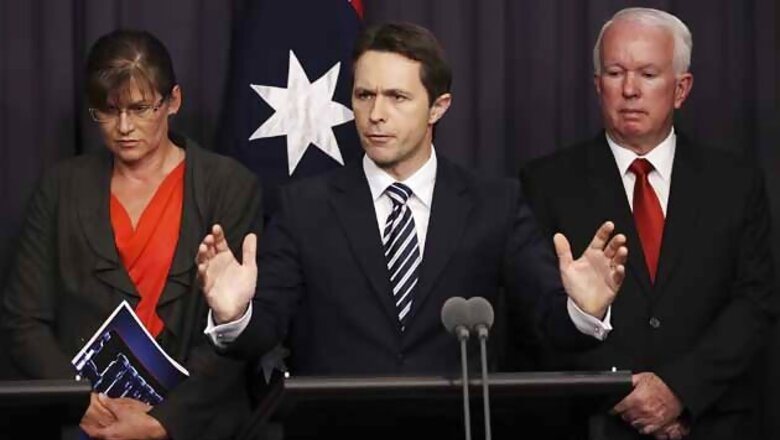
views
Canberra: A government investigation has unearthed widespread use of banned drugs and links with organized crime in Australian sports. The Australian Crime Commission released the findings of the year-long "Project Aperio" on Thursday, saying there was evidence of match fixing, widespread use of prohibited substances including peptides, hormones and illicit drugs, and the infiltration of organized criminal groups in the distribution of performance and image enhancing drugs.
"The findings are shocking and will disgust Australian sports fans," Justice Minister Jason Clare said. "Multiple athletes from a number of clubs in major Australian sporting codes are suspected of currently using or having used peptides."
Illicit drug use by professional athletes was more prevalent than had been indicated by sports drugs testing programs, the ACC report noted, adding that some coaches, sports scientists and support staff had "orchestrated and/or condoned the use of prohibited substances."
The ACC said it could not disclose the details of individuals or sports involved, but had given classified briefings to administrators of some sports or clubs and had referred its findings of suspected criminal activity to the Australian Federal Police and state police forces.
The investigation focused mainly on two prominent sports codes and "identified use of these substances, which are prohibited by the World Anti-Doping Agency (WADA), by professional athletes in a number of sports in Australia," the report said. "Widespread use has been identified or is suspected in a number of professional sporting codes."
The ACC report comes in the same week that Australian Football League club Essendon asked authorities to investigate the use of certain supplements in its 2012 fitness program, and European police agency Europol revealed evidence of hundreds of cases of match fixing in football around the world. The report contained various references to U.S. cyclist Lance Armstrong and the sophisticated and systemic doping that wasn't formally detected during his long professional career.
AFL chief Andrew Demetriou said the findings had come as a shock, and rejected claims that the Essendon investigation had only become public after the club or league had meetings with the crime commission.
"We've always had a very thorough and very rigorous testing regime," Demetriou said. "When you start to think about the sophistication of drugs and how the scientists are ahead of the testers ... then you do have to rely on intelligence gathering. We've done everything we can but we can do more.
"Today is the day we draw a line in the sand and collectively we address and tackle," the doping issue.
The Australian Rugby League Commission revealed that players and clubs in the elite National Rugby League competition are under investigation, and that it had appointed a retired Federal Court judge to assist in its own probe.
ARL Commission chief Dave Smith said the NRL had "worked with the crime commission in the last week or so and information has come forward for NRL specifically that affects more than one player and more than one club."
Smith would not elaborate on whether the information is specifically related to drug use or match-fixing, but said the NRL was already cooperating with the ASADA and planned to centralize testing for illicit substances to complement existing club programs for anti-doping.
"We need to be strong, the sport deserves it, our fans deserve it," Smith said. "It's quite clear this is a very serious issue."
The ACC report found that professional sport in Australia is highly vulnerable to "infiltration by organized crime."
Sports Minister Kate Lundy said the government was moving to introduce tough new measures to crack down on the use of banned drugs and unethical behavior in sport.
"If you want to dope and cheat, we will catch you," Lundy said. "If you want to fix a match, we will catch you. And as you can see by the investigations that have taken place, that we are well on the way to seeking out and hunting down those who will dope and cheat."
The government has strengthened the Australian Sports Anti-Doping Agency's investigative powers, investigative resources and budget to tackle the problem.
"If persons of interest refuse to co-operate with ASADA investigations they will be liable for civil penalties," Lundy said.
The Coalition of Major Professional and Participation Sports in Australia - which includes the national governing bodies for sports such as cricket, both rugby codes, football, Australian rules football - has agreed to establish integrity units to deal with doping, betting and ethical issues and to share information.


















Comments
0 comment